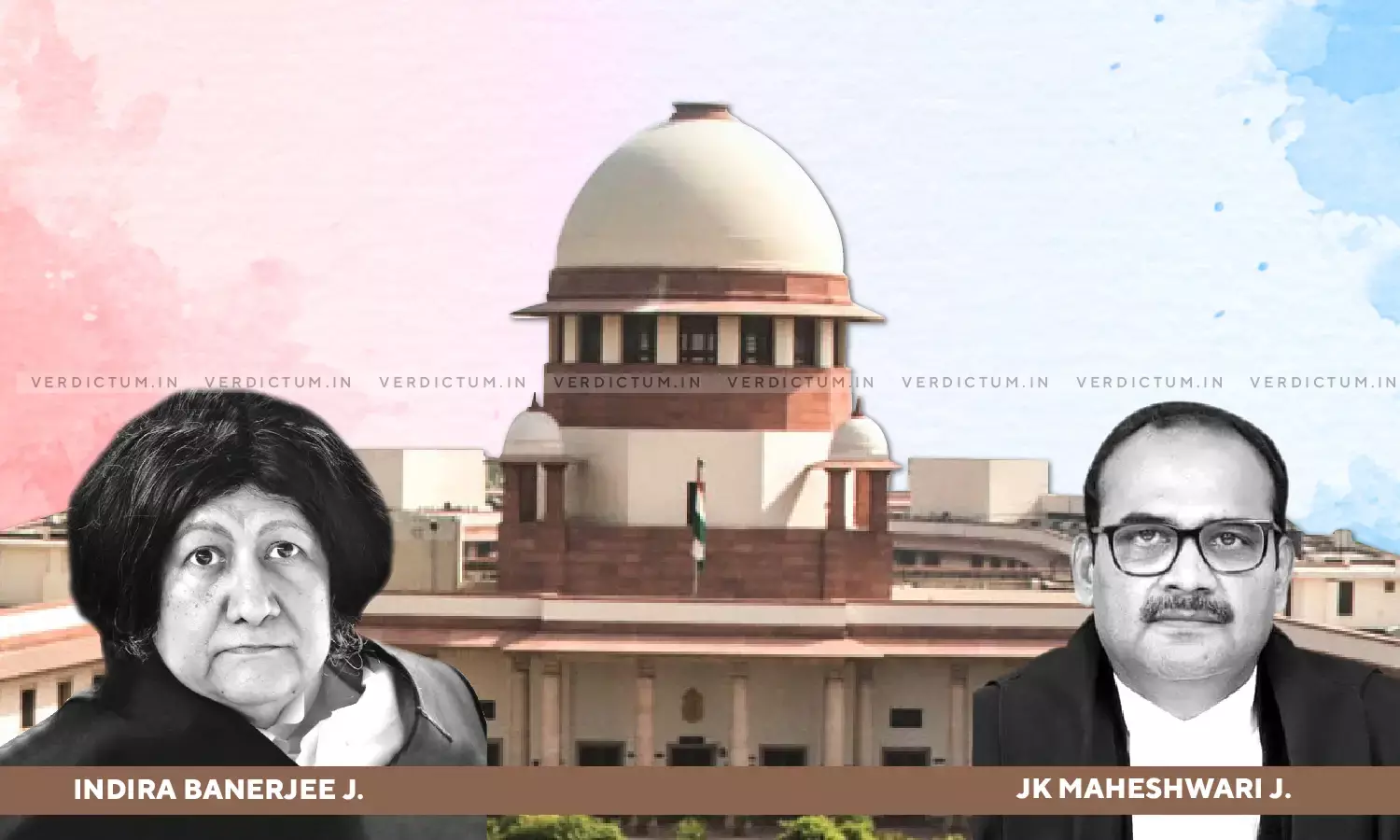Section 100 CPC: Second Appeal Can be Entertained Only On An Unsettled Question Of Law- SC Reiterates

A Supreme Court Bench of Justice Indira Banerjee and Justice JK Maheshwari set aside an order passed by the Bombay High Court as it found that no substantial question of law had been involved in the second appeal.
To that end, it opined that "To be 'substantial', a question of law must be debatable, not previously settled by law of the land or a binding precedent, and must have a material bearing on the decision of the case, if answered either way, insofar as the rights of the parties before it are concerned. To be a question of law "involving in the case" there must be first, a foundation for it laid in the pleadings and the question should emerge from the sustainable findings of fact arrived at by court of facts and it must be necessary to decide that question of law for a just and proper decision of the case. An entirely new point raised for the first time before the High Court is not a question involved in the case unless it goes to the root of the matter. It will, therefore, depend on the facts and circumstance of each case whether a question of law is a substantial one and involved in the case or not, the paramount overall consideration being the need for striking a judicious balance between the indispensable obligation to do justice at all stages and impelling necessity of avoiding prolongation in the life of any lis."
Counsel Nar Hari Singh appeared for the Appellant side, and Counsel Uday B Dube appeared for the Respondent side.
In this case, it was pleaded that the Original Plaintiff was adopted by his uncle Baliram, who died intestate after about 6 months in 1951. After the death of his adoptive father, the Original Plaintiff shifted to a nearby village and managed the properties left by him.
In 1979, the wife of Baliram purportedly gifted the suit properties to the wife of the Original Plaintiff. The Original Plaintiff filed a suit in the Trial Court against the wife of Baliram (Original Defendant No. 1) and his own first wife (Defendant No. 2), praying for the declaration of ownership of the suit properties, perpetual injunction, and other reliefs. On the other hand, the Original Defendants filed their written statements in the suit contending that the Original Plaintiff had not been adopted by Baliram.
The Trial Court dismissed the suit. On appeal, the First Appellate Court set aside the judgment of the Trial Court and held that the Original Plaintiff had been adopted by Baliram and was thus entitled to succeed the suit property.
Respondents Nos. 1 to 4, who were purchasers pendente lite of the suit property filed a Second Appeal at the High Court of Bombay. However, the Original Defendants did not challenge the order passed by the First Appellate Court.
The High Court admitted the appeal, and resultantly, the Appellants approached the Supreme Court.
The Supreme Court found that there were no questions of law before the High Court, let alone substantial questions of law. In that context, it reiterated that a Second Appeal under Section 100 of CPC can only be entertained on a substantial question of law. It relied on a catena of judgments towards the same, including Ram Prasad Rajak v. Nand Kumar & Bros. and Another and Kshitish Chandra Purkait v. Santosh Kumar Purkait and Others.
The Court also referred to prior precedent in cases like Sir Chunnilal V. Lal Mehta & Sons v. Century Spinning and Manufacturing Co. Ltd to establish what constitutes to be a substantial question of law under Section 100 of CPC.
In light of the same, the Court held that "In this case, it cannot be said that the First Appellate Court acted on no evidence. The Respondents in their Second Appeal before the High Court did not advert to any material evidence that had been ignored by the First Appellate Court. The Respondents also could not show that any wrong inference had been drawn by the First Appellate Court from proved facts by applying the law erroneously."
Further, the Court held that the questions raised in the High Court did not meet the tests laid down to establish that the questions are substantial questions of law. To that end, the Court held that "We are constrained to hold that there was no question of law, let alone any substantial question of law, involved in the Second Appeal."
Consequently, the Supreme Court allowed the appeal and set aside the order passed by the High Court, thus upholding the decree passed by the First Appellate Court.
Cause Title - Chandrabhan (Deceased) Through Lrs. & Ors. v. Saraswati & Ors.
Click here to read/download the Judgment

